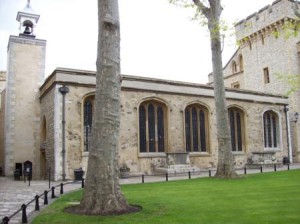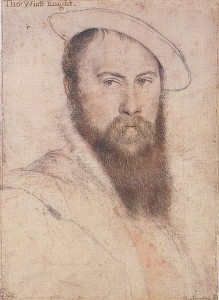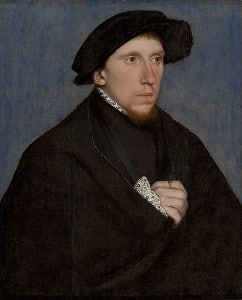
As part of my series on the Boleyn family, I wanted to consider George Boleyn and avenge the myth that he was nothing but a gambler, womaniser and libertine. The George Boleyn I have come to know and love through my research and that of my friend, Clare Cherry, was not the George we meet in novels like “The Other Boleyn Girl”, but was a passionate religious reformer and an accomplished court poet. Like Anne Boleyn, his name has been blackened by history and it’s time to set things right.
Clare Cherry, who wrote the wonderful guest post George Boleyn, Religion and the Reformation is back today to fight George’s corner – thanks, Clare!
George Boleyn the Poet
by Clare Cherry
From early on in his court career, George Boleyn was recognised as a talented court poet and musician. During his lifetime he received praise and respect for his accomplishments, and was considered by his contemporaries to be as talented as the renowned poets of the age, Thomas Wyatt and Henry Howard, Earl of Surrey. Unfortunately, we only know of George’s propensity for poetry from the writings and comments of various people living in the sixteenth century, many of whom knew George personally. The court chronicler Holinshed confirms of him, “He wrote divers songs and sonnets”1. George Cavendish, gentleman usher of Cardinal Wolsey and hardly a supporter of the Boleyn’s, praised his skill in verse as well as his good looks and natural gifts:
“God gave me grace, dame nature did her part,
Endowed me with gifts of natural qualities:
‘Dame eloquence also taught me the art,
In meter and verse to make pleasant ditties”2
John Bale talks of his, ‘rythmos elegantissimos’ and, according to Bale, George was the author of some of the most elegant poetry of the age3. When asking about the other prisoners whilst in the Tower, Anne Boleyn wanted to know whether they had anyone to make their beds for them. When told they had to make their own beds, she suggested that they make their pallets (beds) as they make ballets (ballads), but said only her Lord Rochford had the skill to do so. She had to be reminded that Thomas Wyatt was equally skilled at verse4.
A passage of verse, written by Richard Smith in 1575 and prefixed to a selection of poems written by George Gascoigne, confirms George’s propensity for verse by including him amongst such worthies as Chaucer, Surrey and Wyatt:
“Chaucer by writing purchast fame,
And Gower got a worthy name:
Sweet Surrey suckt Parnassus springs,
And Wiat wrote of wondrous things:
Olde Rochford clambe the statelie throne
Which Muses hold in Helicone
Then thither let good Gascoigne go,
For sure his verse deserveth so.”
The reason we can only determine George Boleyn’s talent from the writings of his contemporaries is because, within a few years of his death, his poetry was lost and none can now be definitively assigned to him.

However, it is possible that some of his poetry has survived. In Tottel’s Miscellany5 (1557-1587), an anthology of selected popular poetry of the sixteenth century, are contained the poems of Thomas Wyatt and Henry Howard, Earl of Surrey, renowned poets of the age, as well as a number of poems by ‘uncertain authors’. It is probable that these poems are a mixture of those by Francis Bryan, George Boleyn and Lord Vaux, all of whom were talented lyricists, although it is impossible to say which poem belongs to which man. All of the works are of similar form and style, popular in the sixteenth century.
There is one particular poem that has been specifically assigned to George Boleyn entitled, “The Lover Complaineth the Unkindness of his Love”. In the manuscripts of John Harington, an author of literature in the sixteenth century, dated 1564, is a copy of this poem, which Harington attributes to George. Bale’s ‘Nugae Antiquae’ utilises Harington’s manuscripts when assigning the piece to George, and likewise Horace Walpole, 4th Earl of Orford, used Harington when writing his, ‘Catalogue of Royal and Noble Authors of England, Scotland and Ireland’ published in 1806, which also attributes the piece to him. A letter of Walpole states:
“I have had a piece of luck within these two days. I have long lamented our having no certain piece by Anne Boleyn’s brother, Lord Rochford. I have found a very pretty copy of verse by him in the new published volume of the Nugae Antiquae, though by mistake he is called Earl of, instead of Viscount, Rochford. They are taken from a MS. dated twenty-eight years after the authors’ death, and are much in the manor of Lord Surrey’s and Sir T. Wyatt’s poems”6
Tottel’s Miscellany assigns the poem to Thomas Wyatt, but as Harington was scrupulous in correctly attributing other compositions to the correct authors, it is entirely possible that the poem set out below is that of George Boleyn, although it is impossible to be certain:
The Lover Complaineth the Unkindness of His Love
My Lute awake, perform the last
Labour that thou and I shall waste,
And end that I have now begun!
And when this song is sung and rest,
My Lute be still, for I have done!The rocks do not so cruelly
Repulse the waves continually,
As she my suit and affection:
So that I am past remedy;
Whereby my lute and I have done.Proud of the spoil that thou hast got
Of simple hearts through Love’s shot,
By whom (unkind!) thou has them won,
Think not he hath his bow forgot,
Although my lute and I have done.Vengeance shall fall on thy distain
That mak’st but game on earnest pain:
Think not alone under the sun
Unquit to cause thy lover’s plain
Although my lute and I have done.May chance thee lie wither’d and old
In winter nights that are so cold,
Plaining in vain unto the moon:
Thy wishes then dare not be told,
Care then who list, for I have done.And then may chance thee to repent
The time that thou hast lost and spent,
To cause thy lovers sigh and swoon;
Then shalt thou know beauty but lent,
And wish and want, as I have done.Now cease my lute: this is the last
Labour that thou and I shall waste,
And ended is that we begun;
Now is this song both sung and past;
My lute be still, for I have done.7
Another poem, which Claire has already quoted in her article “Anne Boleyn Prisoner and Poet” on 18th March 2010, is at times attributed to George and at other times to Anne herself. The poem is supposed to have been written by one or other of them while in prison awaiting execution, and there is also a suggestion that they worked on the poem together whilst in prison, although this is unlikely as the siblings were not allowed to see each other after their arrests. In reality, it is impossible to say whether either of them wrote the piece, and in fact, the composition doesn’t appear to be of the standard of either of them, although the circumstances of the composition would need to be taken into account8.

The poems contained in Tottel’s Miscellany represent the calibre of the poetry written in the court of Henry VIII. Edmond Bapst in, “Deux gentilshommes poetes de la cour de Henri VIII” (Two Gentlemen poets in the Court of Henry VIII, a biography on the lives of George Boleyn and Henry Howard) attempts to show that the gentlemen poets of Henry’s court effectively kick started the English Renaissance by the elegance, brilliance and beauty of their poetry. He suggests that such beauty of verse is remarkable, bearing in mind the baseness of the court and the dominant tyranny of Henry VIII. Bapst promotes George Boleyn, in addition to the Earl of Surrey, as being the harbinger of the English renaissance9. Whether George Boleyn deserves such high acclaim is debatable. As his poems cannot accurately be distinguished, and are now unlikely to ever be, it is sadly impossible to assess the accuracy of this theory.
Even so, George Boleyn, Thomas Wyatt and Henry Howard were acknowledged to be the three most talented poets of Henry’s court. Wyatt and Howard’s poetry survived, while George’s did not. The question is why? Thomas Wyatt died a natural death in 1543, and although Howard was executed in January 1547, the King died a matter of days later. The answer to George’s ‘lost’ poetry seems obvious. Either George’s poetry was deliberately destroyed after his death and was never spoken of again or alternatively other poets took the credit for it. Would the King realistically have wanted the poetry of a young man he had had executed on false charges continue to be regaled around court, and would anyone have dared do so?
What can be said with certainty is that by the late 1520’s the court was a completely different place to the court that George Boleyn first came into contact with in 1514 as a ten year old. Anne Boleyn had brought French fashion and French sophistication back with her to England. Her brother, together with the likes of Thomas Wyatt, and later Henry Howard, brought to the court a gaiety and frivolity that had not been evident in the early years of Henry’s reign. Everywhere, throughout the late 1520’s and early 1530’s, the old was replaced with the new. The courtiers who had been around in the days of Henry’s father were pushed into the background as a new batch of dynamic, witty, talented young men dominated the court. Their poetry was admired throughout London, and their songs and sonnets were heard everywhere. They were the beloved courtiers of the King, and were adored wherever they went. It was a new, fashionable, light-hearted court, and the young men of their generation shone as never before. As we know, many of these young men would have their lights extinguished way too soon, but for a period of about ten years they dominated the rarefied world of power and glory, and whilst they pleased him, the King looked on with pleasure at their talent, wit and exuberance. And the leading lights in this very different court were the two Boleyn siblings.
Notes and Sources
- Holinshed, Chronicles, vol ii, p.1613
- Cavendish, Metrical Visions, p. 20
- Nugae Antiquae, vol ii, p.252
- Anne’s comments in the Tower regarding her brothers talent, Wolsey, ed. Singer, p. 455
- Tottel’s Miscellany, p. 64
- Walpole, Letters, vol iv, p. 131
- This poem can be found in Walpole’s, Catalogue of Royal and Noble Authors of England, Scotland and Ireland, pp. 249-50 and Nugae Antiquae, vol ii, p. 400. Both Walpole and Bale extracted the poem from Harington’s original manuscript dated 1564.
- This poem can be found in the Oxford Book of Sixteenth Century Verse (1932)
- Bapst, pp. 1-6